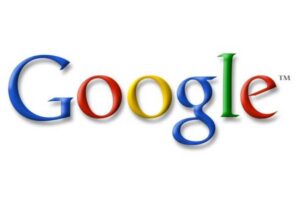 Google and the Association of American publishers (AAP) have reached an agreement in a move that is likely to have implications for all writers. So where does it leave indies?
Google and the Association of American publishers (AAP) have reached an agreement in a move that is likely to have implications for all writers. So where does it leave indies?
Seven years ago, the U.S. Authors Guild (AG) and several major publishers took an action against Google for its unauthorized scanning of in-copyright books, claiming that such scanning was a violation of copyright, as Google were not seeking permission from the rights-holders to create a new book format.
Google argues that such scanning isn't a new format but fair use of an existing format.
In 2009, Google and AG came to a controversial settlement which was rejected by the court in early 2011.
Since then, the parties have doing the tit-for-tat legal thing, as the case drags drags on.
Now the Association of American publishers (AAP) has announced a settlement but without addressing any of the contested issues.
The AAP statement, says that “The settlement acknowledges the rights and interests of copyright-holders. US publishers can choose to make available or choose to remove their books and journals digitized by Google for its Library Project. Those deciding not to remove their works will have the option to receive a digital copy for their use.”
On her blog, ALLi Advisor Victoria Strauss, says: “Apart from the settlement, US publishers can continue to make individual agreements with Google for use of their other digitally-scanned works. Other terms of the settlement are confidential. Since this is a private settlement between the parties, the terms don't have to be disclosed or approved by the court.
“This, of course, leaves a raft of questions unanswered.
- The publishers can remove the Google-digitized books if they don't want them included–but what options do authors have?
- What about orphan works?
- Will Google be able to sell the digitized books–and if so, what share will publishers receive, and will authors benefit?
- The contracts for many of the books are pre-digital, and don't incorporate electronic rights–so should publishers have any control over the digitized books at all, much less receive a digital copy “for their own use”?
…
The settlement gives the settling publishers — and non-settling publishers, if they follow this same model in negotiating with Google — control of something they arguably shouldn't be able to possess, and appears to leave authors out of the equation.
The Authors Guild's class action litigation against Google continues. In the meantime, books scanned by Google are now included in Google Play, a moneymaker for Google and publishers.
But what about authors, asks Victoria?
The publishers’ settlement is likely to affect the Authors Guild litigation, says James Band, a Washington lawyer and library consultant who has written extensively about the litigation. “Parties with a significant commercial interest have decided that scan and snippet display does not harm their market, and this could undermine the AG’s claim of market harm.”
And what about Indie authors in particular — who are also small publishers? What is your relationship with Google (Play)? How do you feel about the settlement? What would you like to see?




